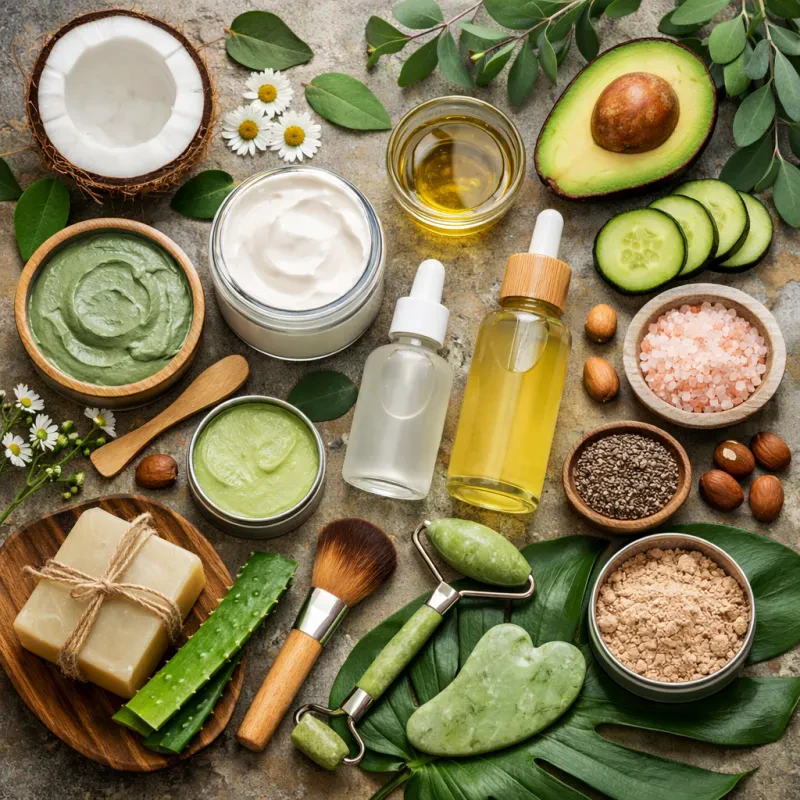Recognize Your Personal Imbalances, Learn How to Correct Them Ayurvedically and Thrive in Your Own Native Physiological Climate
When it comes to keeping your family safe, the choices you make every day really matter. One big decision is whether to go for organic options or stick with synthetic products that can be filled with chemicals. Organic products are generally grown without harmful pesticides and fertilizers, making them a much safer choice for your loved ones.
Think about the foods you feed your family. Choosing organic fruits and vegetables means avoiding harmful residue that can linger on non-organic produce. Not to mention, organic farming practices are better for the environment, which is something we all want to support. Plus, many people find that organic options just taste better!
It's not just food, though. Safe choices extend to household items too. From cleaning supplies to skincare products, many conventional options contain synthetic products that can cause allergic reactions or other health issues. Look for organic brands that use natural ingredients. You’ll be surprised at how effective they can be without all those harsh chemicals.
Making safer choices for your family doesn’t have to be an uphill battle. Start small by switching to organic items where it makes the most sense for you. Whether it’s food, personal care, or cleaning products, you can create a healthier home while giving yourself peace of mind. Your family—and the planet—will thank you!
Understanding Organic vs Synthetic
When it comes to shopping for products, understanding the difference between organic and synthetic can feel a bit overwhelming. Simply put, organic products come from natural sources and are grown without harmful chemicals, while synthetic products are made in a lab and often contain various industrial chemicals. It's like choosing between a fresh home-cooked meal and a frozen dinner—one feels wholesome, while the other may leave you wondering what's really in it.
One of the biggest perks of going organic is that you’re often avoiding harmful substances. Organic products are typically free from pesticides, GMOs, and other synthetic additives. This means less risk of exposure to chemicals that can impact your health. On the flip side, synthetic products can contain ingredients that may irritate your skin or even disrupt your hormonal balance. No one wants that!
Additionally, organic options are generally better for the environment. They support sustainable farming practices that aim to preserve our planet’s health. Synthetic products, on the other hand, can contribute to pollution and environmental degradation over time. By choosing organic, you're not just looking out for yourself, but also for future generations.
Remember, not all products labeled as “natural” are necessarily organic either; it's essential to read the labels carefully. Look for certifications that guarantee a product's organic status. When shopping, take a moment to consider what you're putting into your body and how it aligns with your values. Your health and the environment will thank you!
Benefits of Going Organic
Choosing organic products over synthetic products can have a huge impact on your health and the environment. One of the biggest benefits is that organic foods are grown without harmful pesticides and chemicals. That means you’re less likely to consume toxic residues that can linger on conventional produce.
Another plus? Organic farming practices are better for the planet. They promote biodiversity, improve soil health, and use natural fertilizers. This leads to healthier ecosystems overall, which is definitely a win-win for everyone.
Eating organic can also mean more nutrients in your food. Many people believe that organic products tend to be fresher and taste better because they are grown in a more natural way. Plus, without the artificial additives found in many synthetic products, you can enjoy cleaner flavors. You might find that organic fruits and veggies have that extra crunch and sweetness you’ve been missing!
Lastly, supporting organic farming helps small farmers and local communities. By choosing organic, you’re often buying from local producers who prioritize sustainable practices, which encourages a more sustainable economy. So not only are you taking care of yourself, but you’re also supporting farmers who care about what goes into the food you eat.
How to Spot Organic Products
When you're on the hunt for organic products, it's essential to know what to look for. The term "organic" can sometimes be confusing, especially with the abundance of synthetic products on the market. Here are a few tips to help you spot the real deal.
1. Check for Certifications: Look for labels that say “USDA Organic” or other recognized certification marks. These labels confirm that the product meets specific organic farming standards and hasn’t been treated with harmful synthetic products.
2. Read Ingredient Lists: A true organic product should have a short and straightforward ingredient list. You want to see recognizable ingredients, ideally that come from nature. If you spot hard-to-pronounce chemicals or additives, chances are it’s a synthetic product.
3. Research the Brand: Take a moment to check the company’s website or their social media. They often share their sourcing methods and practices. Brands committed to organic products are usually proud of their processes and will provide clear information.
4. Look for Transparency: A good organic brand will be open about what’s in their products. If a company keeps its ingredient sourcing under wraps, it might be using synthetic products to cut costs. Trustworthy brands encourage you to ask questions!


